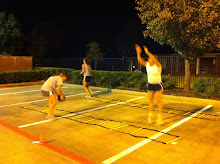
So you're thinking, "How to Eat? Of course I know how to eat. Every human being does." Sadly, this is not true. Our culture has distorted the innate act of eating sensibly by its overwhelming abundance of food. Sure, the presence of a culture that is sufficient and advanced enough to feed all of its citizens three times what they actually need is comforting, but along with that comes obesity and disease. Read on to learn the tips and secrets to eating properly and maintaining a healthy body.
Steps
1.Know what being hungry feels like. This takes some practice. Know that being hungry is a feeling of needing food, any food, in the pit of your stomach. It is not your mind thinking about what it wishes you could eat. When you know you are truly hungry, recognize what this feels like and remember it so that you can recognize it in the future.
2.When you're eating a meal, stop when you're satisfied, not when you're full. Don't you hate when you feel as if your stomach is so gorged it's going to explode? This is a sign that you have made a mistake in how you just ate. After you're done eating, your stomach should feel good, not hurt or stressed.
3.Eat only when you're actually hungry. Our culture seems to think that people get hungry at about 9 AM, 12 noon, and again at 6 PM. While this may be a generally good schedule for eating, remember that (usually) you don't have to eat at meal time if you're not hungry yet. Also, if you are hungry between meals go ahead and have a healthy snack. It's not good to starve yourself between meals; you'll just eat more when the meal comes. It's all about listening to your body. You cannot follow this suggestion, however, until you have mastered Step 1, knowing when you're hungry. Another thing to remember is that by eating whenever you're hungry throughout the day, you shouldn't be eating so much at meal times, because you won't be as hungry and because you haven't waited and starved yourself. If you follow the suggestion of eating between meals if you're hungry and at the same time eat the same amount at meal times, you'll only end up gaining weight.
4.Watch the documentary "Super-Size Me." It will show you how twisted our culture has become not only with its fast-food addiction but also with everyday eating habits and the problems associated with them in a candid and amusingly influential way. Most people who have seen this documentary are swearing that they will change their eating habits before the credits even roll around.
5.Realize that in general, your portion sizes are probably too big. As you will have seen from watching "Super-Size Me," accepted portion sizes have practically doubled in the past 50 years. Remember that your stomach is about the size of your fist. Don't expect to stuff 10 times that amount of food into it without negative consequences. Also, your stomach will get bigger when you're used to eating a lot. If you only eat small amounts of food at a time, your stomach won't ever stretch out like it does when you gorge yourself on a big meal, and then, with a small stomach, it won't take as much to make you feel full. You can do this by only taking a little tiny bit of food onto your plate, and when you're done with that, sit back and feel whether or not you're still hungry. If you are, get a tiny bit more; however, you'll find that you're usually not still truly hungry.
6.Have many small meals, rather than a few big ones. This goes along with Step 3. Nutritionists point out again and again that this is a better, healthier way to eat. In general, it is considered healthier to eat five meals a day than three. In fact, if you watch any makeover or weight loss reality TV shows, they are always eating about 5 to 8 meals a day (with small portions and healthy choices at each meal, of course). This is because it keeps your body in the digesting-food mode. In scientific terms, it keeps your metabolism up. Think about it, if you've eaten barely anything all day, your metabolism will be slowed way down, then when you finally do eat, your metabolism will be so slow that your body won't be using it and digesting it efficiently.
7.Eat breakfast every day. This starts your metabolism going early in the morning (since it slows down at night because you haven't eaten anything for awhile).
8.Exercise. This again raises your metabolism, not to mention burns calories. Exercise also increases the digestive process, speeding up digestion. To get all you can out of exercise, try to combine typical gym-related work such as running on the treadmill and lifting weights with "fun" work like biking, hiking, or playing soccer with your kids.
9.Take advantage of science's low-fat inventions. Don't feel stupid when everything in your cart at the grocery store has some form of "low-fat" on the carton. The fact is that low-fat substitutes are lower in fat than the originals and more practical for today's lifestyle (where you aren't scrounging to get enough fat into your diet, like humans did in prehistoric times). And it doesn't take that much out of the taste.
10.Keep in mind that sweets aren't the only things that taste good. Yes, everyone knows that cakes and cookies taste good to your taste buds. You, however, have an over-abundance of fatty foods at your disposal and by no means should be eating it as much as we do today. But yes, it does taste so good. But remember, other things taste good, too. How about some nice spicy grilled chicken? Or a tropical banana smoothie (with low-fat yogurt)? And doesn't Marinara sauce on pasta taste good? These are all perfectly acceptable foods, eaten in moderation of course, as with everything else. And even foods that don't seem so appealing can taste good with a little preparation, such as adding some cinnamon to applesauce, or cooking broccoli before eating it if you don't like the taste of raw broccoli.
11.Fruits and vegetables are your friends. Buy a large variety of nice fruits and vegetables and eat them at meal times and for snacks. Keep in mind that lettuce, celery, and carrot sticks have almost no calories, and a sensible portion size of most other fruits and vegetables have less than 100. And remember, they taste good! If you don't think so, keep this in mind: how good does alcohol initially taste? Yet billions of people cultivate a taste for it because they want to. You can do the same with healthy food.
12.Don't fantasize about food. It is a proven fact that watching TV makes you want to eat more. It's because of all those mouth-watering commercials with close ups of perfectly prepared food. Don't watch these; it does nothing for your stomach to just think about food. Also, don't fantasize on your own time about just how great devouring an entire ice-cream cone would be. Just push it out of your mind and think of something else, then you won't want it as much. Or, think about how good those fresh strawberries you're going to have with lunch are going to taste.
13.Don't waste calories on drinks. It is a good idea to drink water or flavored water whenever possible. It not only is great at hydrating you, but has no calories. A glass of most other drinks have 100-200 calories, and they don't make you feel any fuller. In essence, drinking something other than water does nothing for you except quench your thirst and adds calories to your count for the day. Just think, if you normally have three drinks a day other than water that is about 500 calories that you could cut out by having water instead.
14.Eat slowly. Chew your food well. This means at least 10-20 chews per bite of food. And no, you can't just take bigger bites so that this is a reasonable amount of chews; take small bites also. Remember that it takes about 20 minutes for your full-feeling to get into your stomach, regardless of how much you eat. You could eat 10 plate fulls of food, and as long as you did it within a few minutes, you still wouldn't feel full.




















No comments:
Post a Comment